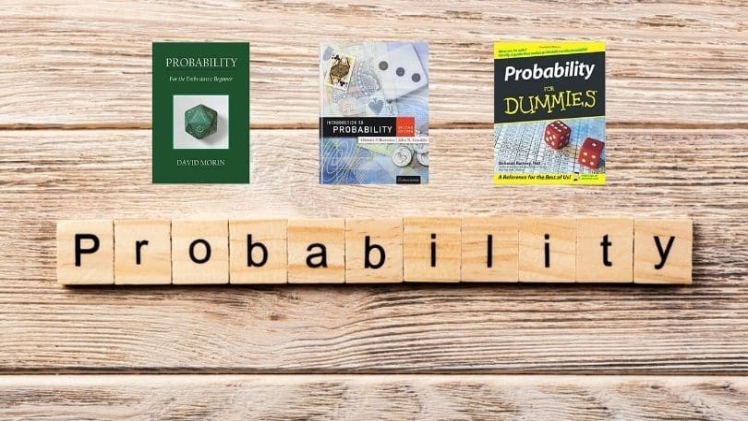When it comes to probability learning, it can be challenging when there are numerous resources to get the information needed. Some of the resources may include textbooks, courses, and tutorials. The study helps to learn systems from data and a foundational field for machine learning. Probability is a mathematical concept that helps in quantifying uncertainty.
Most of the aspects are not sure, such as observations from the learning model and domain. That is one reason you need to read and understand probability, and some practical tools and methods make the process an easy one. You can also seek more information from Edutized.com when preparing for assignments, tests, and exams. Probability is a field of mathematics that has fascinating facts hence the need to use learning tools.
Most of the students have challenges understanding the subject, so you need to look for resources and guides. It helps to make the learning process easier for you. It would help if you used the guides to understand and enhance your academic grades.
Probability Applications
Probability theory is applicable in everyday life, especially in modeling and risk assessment. In the insurance industry, actuarial science is used for pricing and trading decisions. The government uses probability methods for environmental regulation and analysis. The financial assessment uses probability to analyze trends and the likelihood of any undesired events.
Probability helps with reliability in our daily lives, helps with more consumer products like consumer electronics and automobiles. Reliability theory reduces any failure in probability and affects manufacturers’ decisions, especially on product warranty.
You need to review the probability topics and look for what is relevant. Probability is the study of uncertainty in the mathematical field. It is also used in machine learning for algorithms on probabilistic data assumptions.
Below are some of the boos you can read to understand probability:
- A Course in Probability Theory: It is a book by Kai Lai Chung; it requires that you have some mathematical maturity and degree of understanding. You will have access to thorough proofs of basic probability concepts used in probability.
- An Introduction to Probability and its Applications: A book by William Feller and comes in two volumes. The first volume is meant for beginners since it has discrete probability. The added advantage of this book is that it treats probability as a stand-alone theory.
- Bundle of Algorithms in Java, Third Edition, Parts 1-5: Fundamentals, Data Structures, Sorting, Searching, and Graph Algorithms. It is a book by Robert Sedgewick, an excellent book for students, and it helps with codes that can help with your probability work.
- Data Mining: Practical Machine Learning Tools and Techniques. A book by Ian H. Witten, this is your book if you want to learn about probability and machine earning. The ideas shared help simplify the concepts, and if you do not want to do too much to the details, this is the best guide. It offers excellent knowledge as you work.
- Discovering Statistics Using Rby Andy Field: A good guide for new people to probability and start a programming language. The book supports R and can be in a casual way to make it easy to read.
- Fifty Challenging Problems in Probability with Solutions: The author is Frederick Mosteller, and the book is a compilation of theory plus puzzles. The puzzles are tractable, and you do not need any advanced knowledge in mathematics to solve them.
- First Course in Probability: It is a book by Sheldon Ross that offers mathematical theories regarding probability. The aim is for readers to understand the concept and the probability knowledge. You will have access to new examples and practical exercises; there is a section with computing knowledge.
- Introduction to Algorithmsis a book by Thomas H. Cormen, a guide that offers in-depth information on probability and algorithms. With a design and analysis for all readers. The chapters are self-contained and can be used as a unit of study.
- Introduction to Probabilityby Dimitri P. Bertsekas is a good resource for people who want to learn probability outside the physical classroom. It is the best choice if you do not have any prior experience; the challenge is it has fewer examples.
- Introduction to Probability Theoryby Paul G. Hoel: An excellent choice for students who are interested in elementary probability theory. Especially people who are into calculus probability, unlike theoretic probability. This book is for students with less experience in the subject.
- Probability and Statisticsis a comprehensive book by Morris H. DeGroot and the best for people with a strong math background. You will have access to all probability concepts, such as Bayesian methods.
- Probability Theory: A Concise Course: It is a book by Y.A. Rozanov. It is not an excellent book for all students since you need some experience in mathematics. The book is a perfect choice for larger audiences. As for math and science students, it is a fast way to learn probability.
- Probability Theory: The Logic of Scienceby E.T. Jaynes: The book goes beyond the normal probability theory; you will have access to broader subjects. You will have access to new results and interactive applications of the probability theory and problems.
- The Probability Tutoring Book: An Intuitive Course for Engineers and Scientists (and Everyone Else!)by Carol Ash. It is a self-study guide that helps students with practical examples and problem-solving courses. You will have access to illustrations, diagrams, and solutions to help when solving probability problems.
- Understanding Probability: Chance Rules in Everyday Life. It is an excellent book by Henk Tijms, and the other half of the book knows statistics. It is the right book with a mix of concepts to learn about probability.
When you are learning probability, you need the right resources and guide to understand better. You can look for online help or know the above-stated books; more resources can offer more practical and theory information. They will help you master probability and help with your grades.

